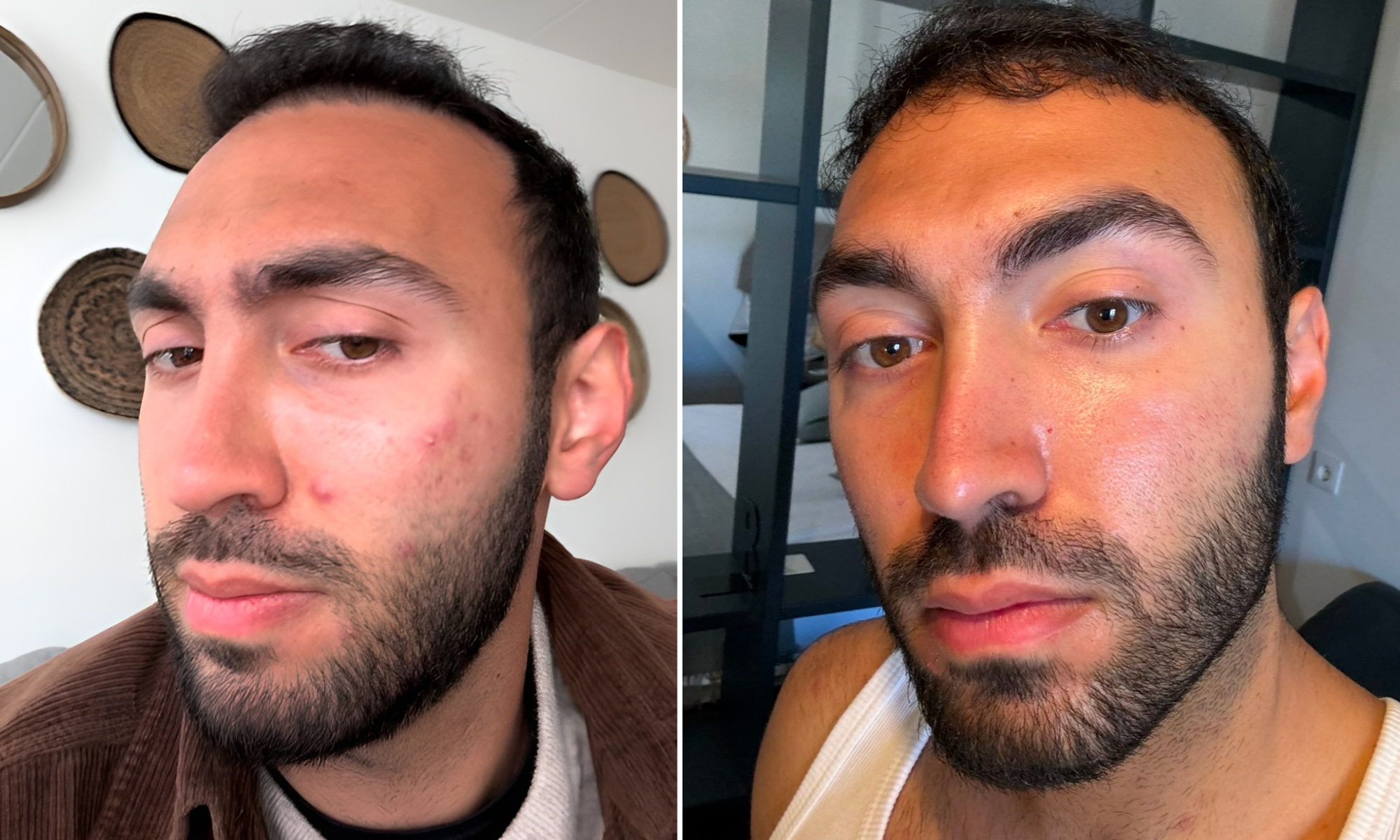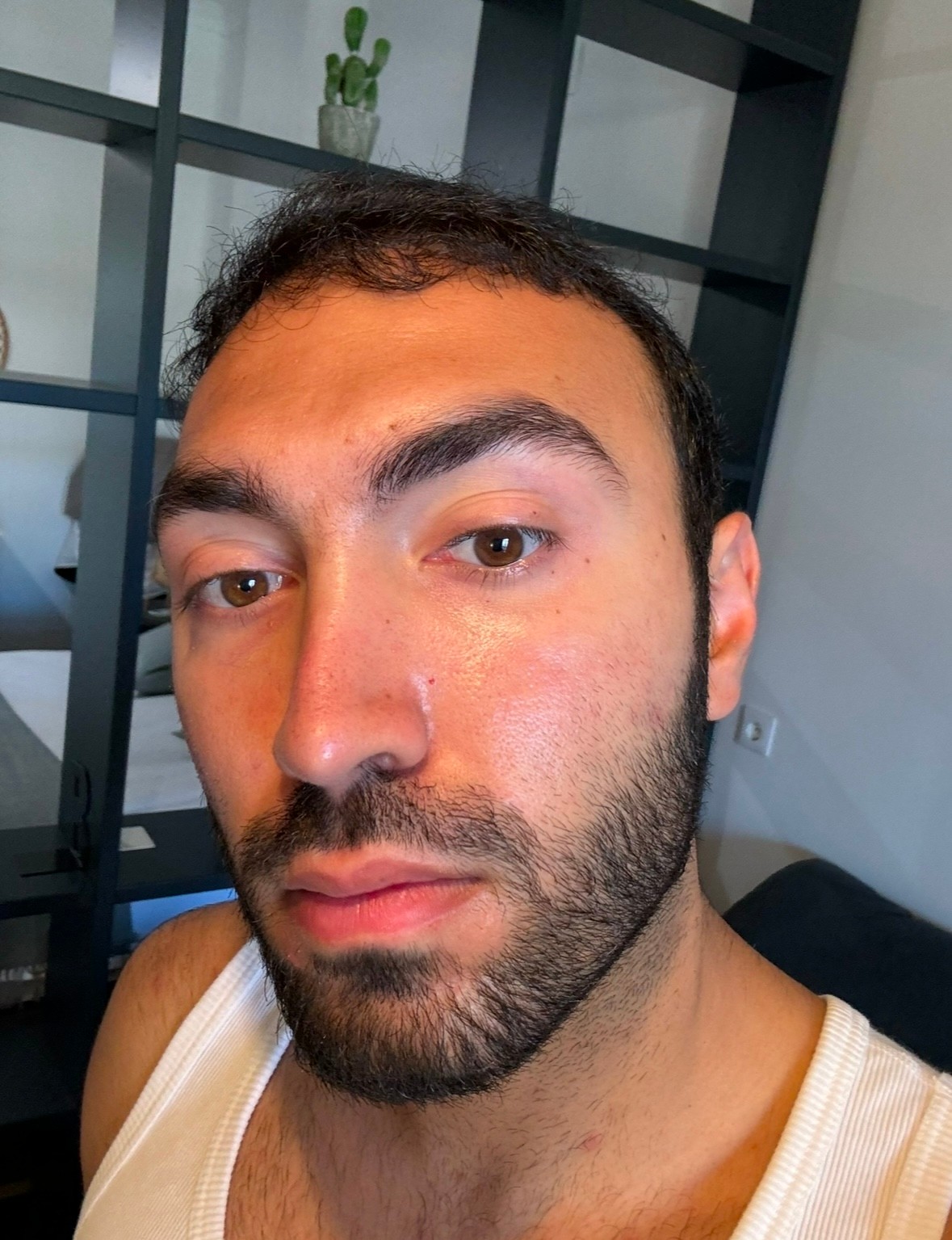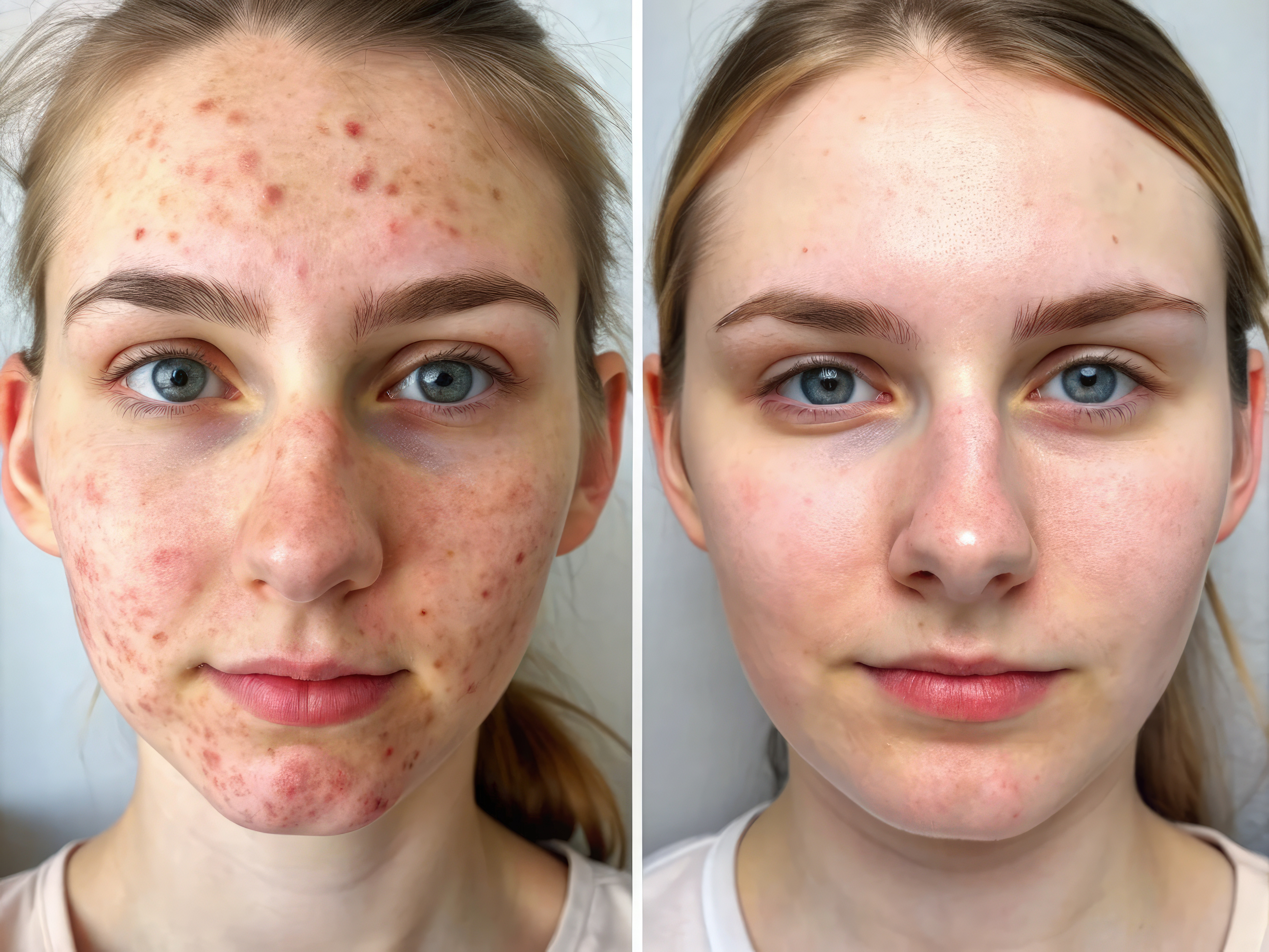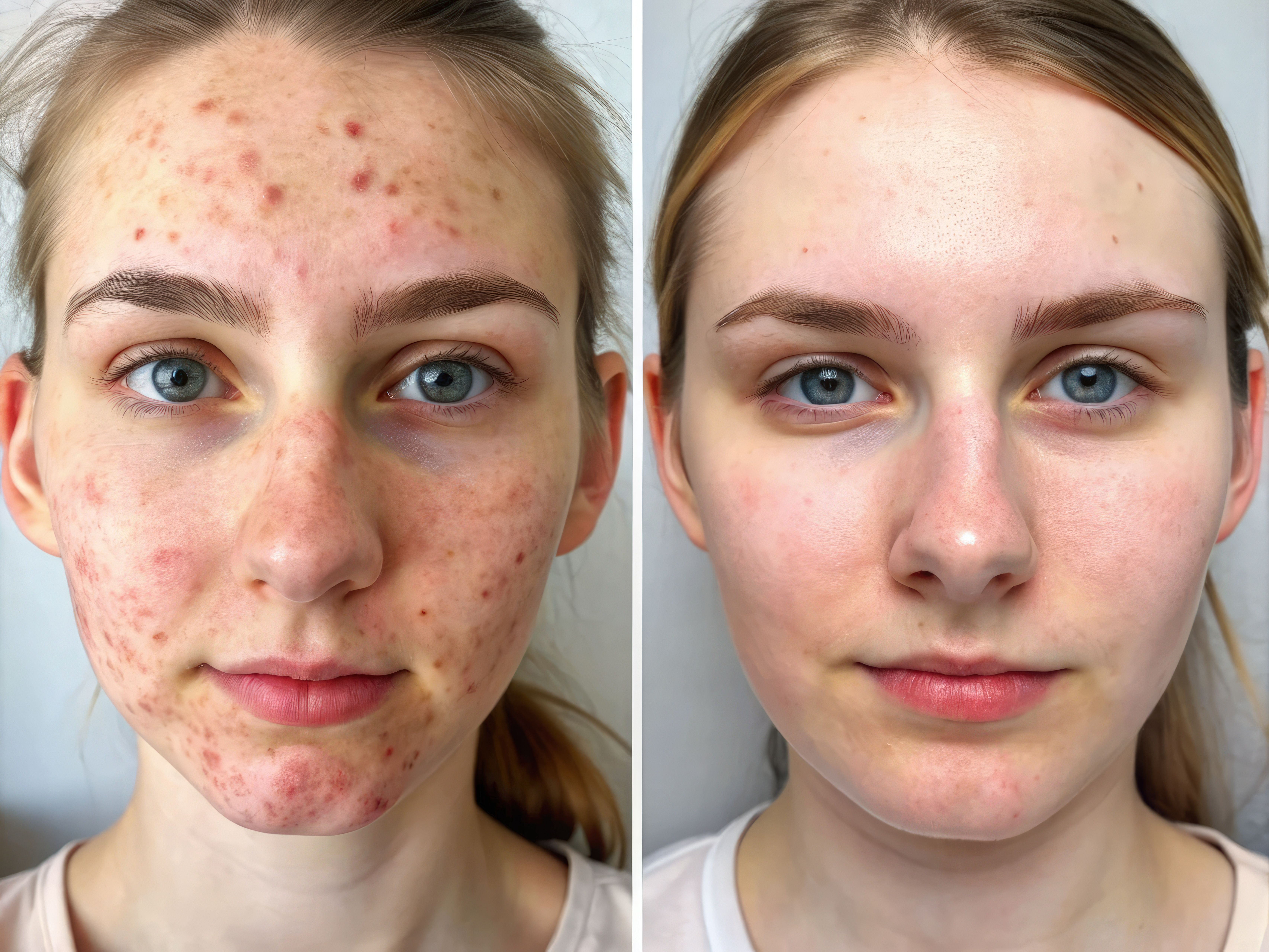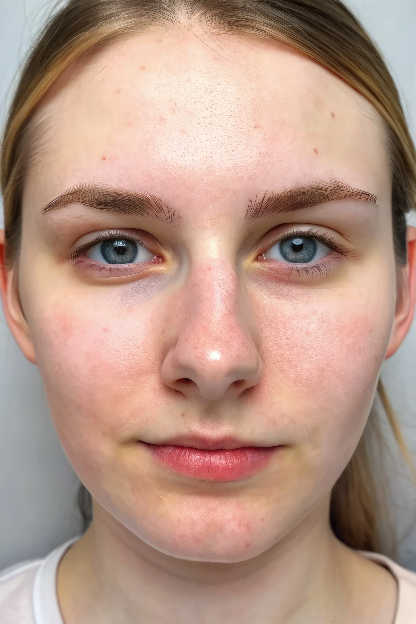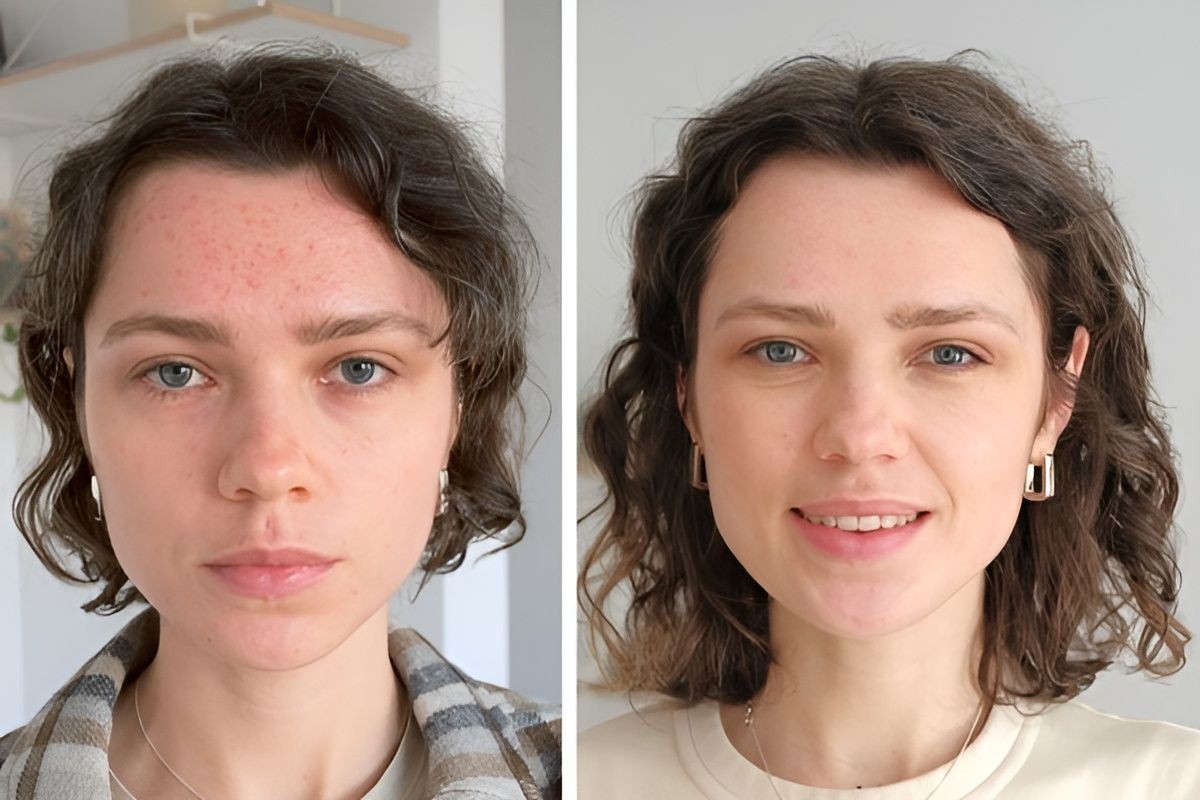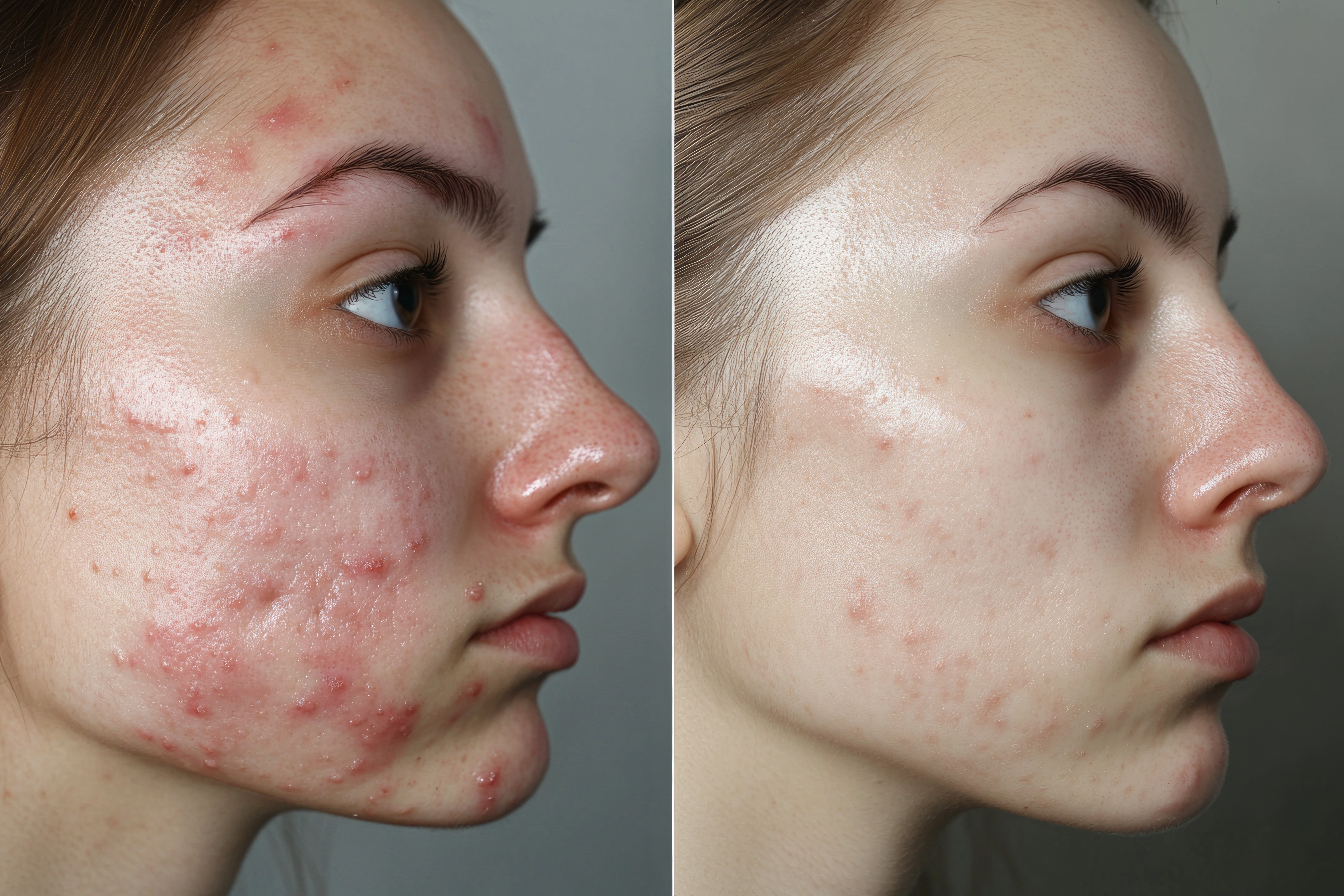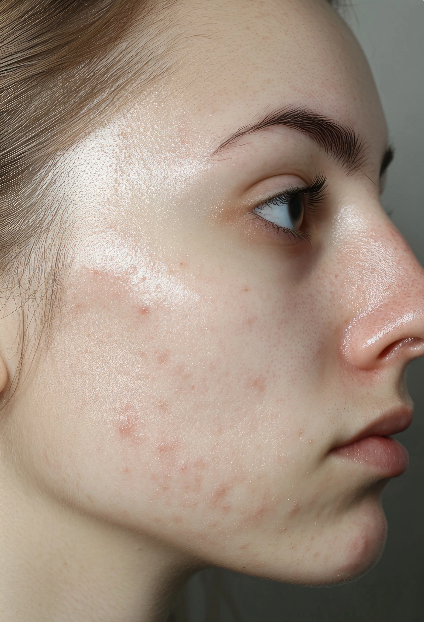Inflammatory and White Spots

Whiteheads are a very common form of acne. Unlike blackheads, which are open comedones, whiteheads are closed comedones that appear as small, white bumps on the skin’s surface. They occur when pores become clogged with oil, dead skin cells, and bacteria, but unlike blackheads, the clogged material remains covered by skin.




